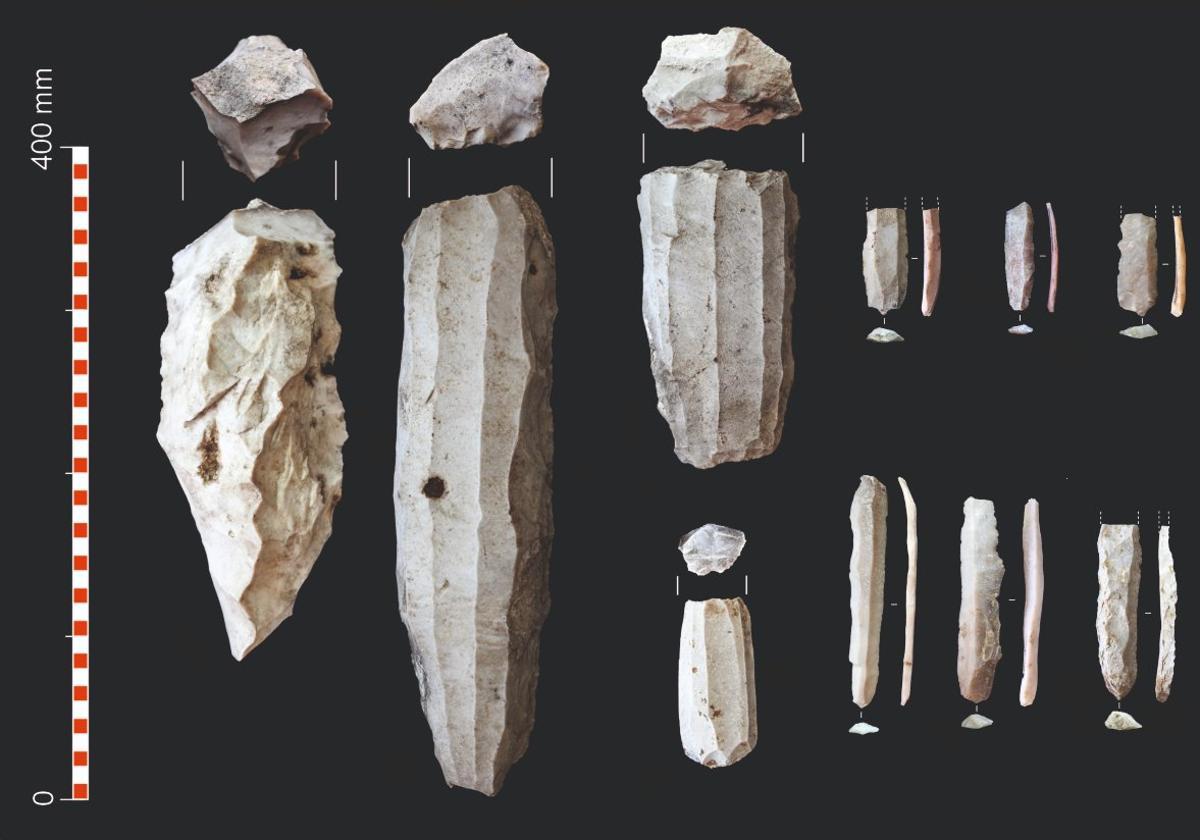Discovery of a Large Flint Tool Site in Guadalajara
The artefacts found, used 5,000 years ago, demonstrate that their creators possessed extensive technical knowledge.
J. M. L.
Guadalajara
Wednesday, 19 February 2025, 11:45
A team of scientists from the University of Alcalá de Henares (Madrid) has discovered a vast site of flint tools dating back 5,000 years in Romancos, a small hamlet in Brihuega (Guadalajara). The wooded area where it was found was used for extracting and manufacturing flint, according to the researchers leading this project, Ignacio Triguero Perucha and Francisco Martínez Sevilla.
Specifically, more than 80 large flint cores have been uncovered, from which blades were extracted and later used as domestic tools. "We did not expect a site of these proportions, and beyond its spectacular nature, its discovery allows us to understand the economy of these prehistoric societies in the Tajuña and Ungría river valleys," explain the researchers, who have also found ceramic remains, something rare in such quarries and workshops.
The next phase of this archaeological project, which also involves geologists and biologists, will consist of excavating part of the site to find materials that will allow the study of daily life 5,000 years ago and determine whether the flint was extracted from pits, mines, or quarries.
Findings in Romancos will also be compared with flint blades from other parts of Spain to confirm the hypothesis that these products were traded between distant populations.




